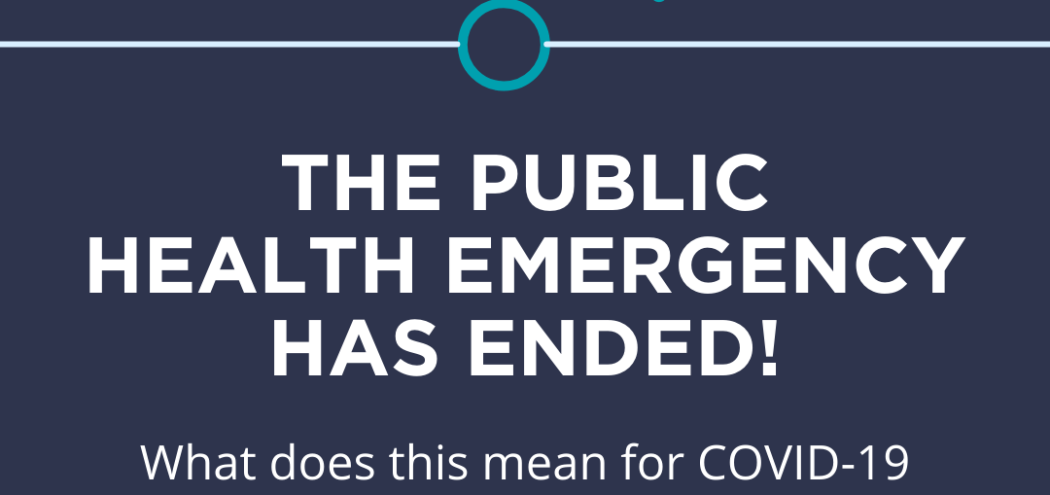
On May 11, 2023, the public health emergency (PHE) declaration came to an end. Here is what we know about how this will affect COVID-19 vaccines, testing, and treatment.
What is the Public Health Emergency (PHE) Declaration?
On January 31, 2020, the Secretary of Health and Human Services (HHS) declared a public health emergency because of COVID-19. This allowed the Secretary to take necessary action in response to the PHE. This included the ability to make grants, support investigations into the cause, treatment, or prevention of COVID-19, access appropriate funds, modify practice of telemedicine, and more. For a deeper dive, visit HHS.gov.
Does this mean we don’t need to worry about COVID-19 anymore?
No. COVID-19 is still a prevalent virus in the United States, according to the CDC. You should still stay up-to-date on your vaccines and boosters, and wear a mask when necessary.
Will COVID-19 vaccines and boosters still be free?
Yes. COVID-19 vaccines and boosters will continue to be free to the public as long as the supply of federally purchased vaccines is still available. Once the federal supply of vaccines runs out, then vaccines will continue to be available and free for most people with private and public insurance, according to the CDC.
Click here to find a COVID-19 vaccine or booster near you.
Will COVID-19 tests still be free?
The cost of COVID-19 tests will vary depending on your insurance coverage.
- If you have Medicaid, then your COVID-19 tests will remain free until September 2024.
- If you have private insurance, then it will depend on the discretion of your specific insurer. Some insurers may choose to cover the cost of COVID-19 tests while others will not.
- If you have traditional Medicare or do not have insurance, then COVID-19 tests will no longer be free. The costs of the tests will vary by individual providers. You may be able to find free tests at local clinics or community health center.
Click here to find at-home COVID-19 tests.
Will COVID-19 treatments still be free?
Regardless of your insurance coverage, you will still be able to get federally purchased COVID-19 pharmaceutical treatments, like Paxlovid, for free.
- If you have Medicaid or Children’s Health Insurance Program (CHIP) coverage, then all COVID-19 pharmaceutical treatments will be free until September 2024. After that date, these treatments will continue to be covered, but states may set limits on usage and may impose a copay on some COVID-19 treatments.
- If you have Medicare, then some COVID-19 pharmaceutical treatments may require a copay.
- If you have private insurance, then the cost and coverage of COVID-19 pharmaceutical treatments will vary based on the private insurer.
- If you do not have insurance, then you will need to pay out of pocket for COVID-19 pharmaceutical treatments or choose to use Paxlovid, which is free for everyone.
Click here to find COVID-19 treatment from a community health center.
If you have any questions regarding vaccines, testing, or treatment, then we encourage you to speak with your healthcare provider to find out what’s right for you.
All of this information was provided by Public Health Communications Collaborative, Health and Human Services, and the Centers for Disease Control and Prevention.